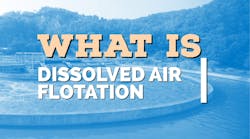In National Assn. of Clean Water Agencies (NACWA), et al. v. EPA, the U.S. Court of Appeals for the District of Columbia Circuit decided to remand significant components of the U.S. Environmental Protection Agency’s (EPA) March 2011 Sewage Sludge Incinerator (SSI) rule back to EPA for further consideration and explanation. In making this ruling, the D.C. Circuit agreed with a number of NACWA’s legal challenges to the final rule, including EPA’s failure to properly account for variability in sewage sludge at publicly owned treatment works (POTWs) and EPA’s inadequate justification for setting emission limits using novel methods and incomplete data.
NACWA initiated the litigation in May of 2011 to challenge both the statutory and technical basis of EPA’s final SSI rule. In issuing the remand, the D.C. Circuit agreed with the majority of NACWA’s legal arguments challenging the technical validity of the rule, noting that EPA must provide greater clarity and justification on how it derived the rule’s SSI emissions limits for the standards to be legally valid. As a result of the ruling, EPA must now reconsider portions of the final rule and make the necessary changes to the emission limits.
“While we are disappointed the Court did not agree with all of our arguments regarding EPA’s statutory authority, the Court’s ruling does open the door for EPA to correct this problem. Additionally, [the] remand is a clear statement that EPA’s technical justifications for the rule are inadequate. This is especially true regarding the Agency’s failure to properly account for sewage sludge variability, its failure to identify all of the best performing units, and its failure to properly explain how it developed the emission standards from an inadequate dataset. As a result of [the] decision EPA must go back and get these SSI emission limits right,” said Ken Kirk, Executive Director of NACWA
Kirk further noted, “The SSI rule will require significant financial expenditures by clean water utilities that have relied on incineration as an environmentally safe and economically responsible way to manage biosolids for many years. Accordingly, it is essential that a revised SSI rule be based on scientifically and statistically accurate methods and data. That is why we challenged the rule, and that is why we are pleased with today’s remand. We look forward to working with EPA and new Administrator Gina McCarthy to move forward with the remand process as expeditiously as possible and ensure we get this rule right.”


